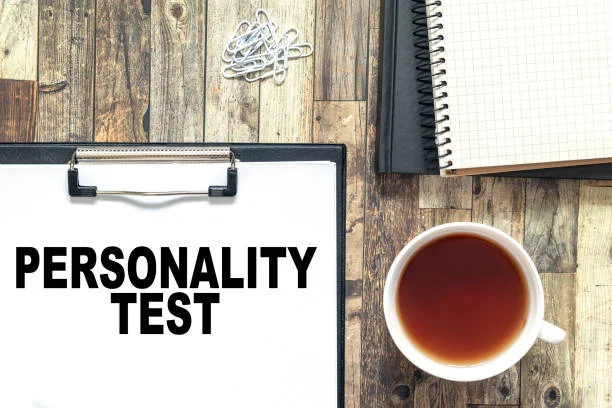In recent years, online personality and lifestyle quizzes have become a prominent feature of digital culture. Whether seeking insight into one’s character, preferences, or future aspirations, millions of users engage with these quizzes daily across social media platforms, entertainment sites, and specialized apps.
Their appeal lies in the fun and light-hearted nature and the perceived personal insights they offer, fostering a sense of self-discovery. This rise in online quizzes has also influenced pop culture, with quiz results frequently shared and discussed in social circles, further boosting their visibility.
The widespread popularity of these fun online quizzes has prompted curiosity about the demographics of their participants. Data shows that quiz-takers span diverse ages, backgrounds, and interests, although specific segments, such as younger adults, tend to engage more frequently.
Understanding the science behind how these quizzes are designed and how responses are measured, we can understand why they resonate with different demographic groups and what drives their cultural impact.
Why Do People Love Taking These Quizzes?
People love taking personality and lifestyle quizzes because they tap into two key psychological needs: curiosity and self-exploration.
At our core, we are naturally curious beings, always seeking to learn more about ourselves and the world. Online personality quizzes provide a quick, fun way to satisfy that curiosity—offering insights into who we are, our strengths, and even our hidden traits. It’s like looking into a mirror, but instead of just seeing your reflection, you get a glimpse of your inner self.
- Curiosity and self-exploration: Quizzes satisfy our innate desire to learn more about ourselves, revealing strengths, hidden traits, and personality aspects.
- Sense of validation: When quiz results resonate with your personal experiences or identity, they confirm who you are.
- Belonging: Many quizzes categorize people, helping users feel connected to others who share similar results and creating a sense of community.
- Fun and accessible self-exploration: Quizzes make self-reflection enjoyable and allow people to feel unique yet part of something bigger.
Quizzes, in a way, make self-exploration fun and accessible. And with every result, people get a little reminder that they are unique yet part of something bigger, which is pretty appealing.
The Impact of Quiz Results on Self-Image
Random online quizzes can surprisingly strongly impact how we view ourselves and even influence our decision-making. Whether we realize it or not, the outcomes of these quizzes can shape our self-image in both positive and negative ways.
How Quiz Results Affect Personal Identity and Decision-Making
When we receive quiz results, they often feel like a reflection of who we are. For example, if a quiz tells you that you’re an “adventurous spirit” or a “natural leader,” it can reinforce aspects of your personality that you either knew or hadn’t fully acknowledged.
This affirmation can be empowering and may even guide future decisions, from how you approach relationships to what career paths you consider. People often take these results to heart, especially when they align with their self-perceptions.
On the other hand, quiz results can also subtly influence your decisions by creating new labels for you. For example, if you get a result labeling you as an “introvert,” you might start to view social situations differently, perhaps feeling justified in avoiding them or pushing yourself to challenge that label.
Can Quizzes Enhance or Distort Self-Perception?
Quizzes have the potential to enhance self-perception by providing positive affirmations that boost confidence or clarify personal traits. They can help you better understand yourself and give you direction in life. However, there’s a flip side: quizzes can also distort self-perception by promoting oversimplified or inaccurate labels. These results can lead people to identify too strongly with traits or behaviors that may not fully represent them, limiting how they see themselves or approach life situations.
For instance:
- Enhancement: If a quiz result highlights strengths you weren’t fully aware of, it could give you the confidence to explore new opportunities.
- Distortion: Conversely, overly rigid or exaggerated quiz results might box you into categories that don’t truly reflect the complexity of your personality, affecting how you see yourself.
Using Quizzes for Self-Improvement: Do They Really Help?

Many people turn to quizzes not just for fun but as a tool for self-improvement. But do these quizzes lead to meaningful lifestyle changes or personal growth? The answer depends on how seriously you take the results and how you apply them in your life.
Can Quizzes Lead to Meaningful Lifestyle Changes or Self-Development?
Yes, quizzes can lead to self-development, but only when approached thoughtfully. Personality and lifestyle quizzes often prompt reflection on areas of life that people may not have considered deeply. For example, a quiz that reveals you’re more of a planner than a spontaneous person might push you to embrace your organizational strengths and make more strategic decisions in your career or personal life.
However, the key is how you interpret and act on these results. Quizzes are most useful when treated as a starting point for introspection rather than definitive labels. If you view them as a way to identify areas for growth or improvement, they can help you make lifestyle changes. But if taken too literally, they could limit how you see yourself, hindering your potential for change.
How Quizzes May Inspire Goal Setting and Personal Growth
Quizzes can also be inspiring when setting goals and pursuing personal growth. They often highlight areas where you may want to change or set new objectives. For example:
- Identifying strengths: If a quiz emphasizes your leadership skills, you might feel motivated to take on more leadership roles, whether at work or in your community.
- Highlighting areas for growth: Some quizzes can point out traits or habits you may not have recognized, helping you focus on personal development. For example, a quiz about your wellness routine might show areas where you could improve your health or fitness habits.
- Creating a roadmap: By bringing certain qualities to your attention, quizzes can help you set more evident, achievable goals. Whether improving social skills, boosting self-confidence, or focusing on work-life balance, the results can give you a sense of direction.
Personality Quizzes and Relationship Compatibility
Online personality tests are often used as a fun way to explore compatibility in friendships and romantic relationships. People take fun couple quizzes online, hoping to understand better how well they might get along with someone based on shared traits or differences. While they can be insightful and even lead to self-discovery, the science behind relationship-based quizzes has its limits.
How Quizzes Are Used in Determining Friendship and Relationship Compatibility
There are many couples quizzes to take together online that aim to assess how compatible two people are by comparing their answers to a set of psychological traits or preferences. For example, quizzes might ask questions about communication styles, conflict resolution approaches, or emotional needs, all of which play key roles in friendships and romantic relationships. Based on the results, the quiz might categorize the relationship as “highly compatible,” “workable,” or “challenging,” providing a simplified snapshot of how well two individuals could connect.
These quizzes are viral because they offer a fun and easy way to approach complex relationship dynamics. They allow people to reflect on their behaviors and preferences while imagining how they might mesh with another person’s personality.
The Science (and Limits) Behind Relationship-Based Quizzes

While relationship quizzes can provide valuable insights, they are often based on generalized personality theories rather than detailed scientific methods. Most quizzes use simplified versions of established psychological frameworks, like the Myers-Briggs Type Indicator (MBTI) or the Big Five Personality Traits, to determine compatibility. Personality tests like the Myers-Briggs Type Indicator (MBTI) and the Big Five are widely used across various sectors, including education and corporate environments.
Approximately 75% of Fortune 500 companies utilize personality assessments for hiring and team-building purposes, indicating their importance in professional settings. However, relationships are far more complex than any quiz can measure. Emotional intelligence, shared values, life experiences, and situational factors all contribute to a relationship’s success, and these are hard to quantify in a quiz format.
Limitations include:
- Over-simplification: Relationships involve complex emotions and dynamics that cannot be fully captured by multiple-choice questions.
- Subjectivity: Many quizzes rely on self-reported data, which may be skewed by how a person views themselves rather than how they actually behave.
- Context: The context of a relationship—such as life circumstances, external pressures, and growth over time—is not factored into quiz results.
Visual Representation of Relationship-Based Quizzes
Below is a simple graph showing the potential factors influencing relationship compatibility that quizzes often overlook, compared to what quizzes usually assess:
Factors in Relationship Compatibility vs. Quiz Focus
| Factor | Importance in Relationships | Focus in Quizzes |
| Emotional Intelligence | High | Low |
| Communication Styles | High | Moderate |
| Conflict Resolution | High | Moderate |
| Shared Values | High | Low |
| Personality Compatibility | Moderate | High |
| Situational Context | High | Low |
This table shows that while quizzes focus heavily on personality compatibility, they tend to downplay or completely overlook other important factors like emotional intelligence, shared values, and situational context, which are critical in real-life relationship dynamics.
What Are the Most Common Types of Personality Quizzes?
The best personality test comes in various forms, each designed to assess different aspects of who we are. Some of the most common types include:
- Myers-Briggs Type Indicator (MBTI)
This is one of the most well-known personality quizzes. Myers personality test categorizes people into 16 distinct personality types based on four dichotomies: introversion vs. extroversion, sensing vs. intuition, thinking vs. feeling, and judging vs. perceiving. Many people use it to understand how they interact with the world and others. - Big Five Personality Traits
The Big Five model evaluates five key dimensions of personality: openness, conscientiousness, extraversion, agreeableness, and neuroticism. It’s widely respected in psychological research and is often used in academic and practical settings. - Enneagram
This system identifies nine personality types, each with its own unique set of motivations, fears, and worldviews. It’s often used for personal growth and self-awareness, delving into how different types react under stress or when striving for personal goals. - StrengthsFinder
This quiz focuses on identifying individual strengths and talents, which can be useful for career development. It helps people understand what they excel at and how to apply their strengths in different areas of life. - DISC Personality Assessment
The DISC model classifies behavior into four categories: dominance, influence, steadiness, and conscientiousness. It’s often used in corporate settings to help teams work better together by understanding different working styles. - Zodiac or Astrological Quizzes
While not scientifically backed, quizzes based on zodiac signs are viral. They offer insights based on astrological signs, focusing on personality traits, relationship compatibility, and even future predictions. - Pop Culture Quizzes
These quizzes often have less scientific backing but are hugely popular on social media. They link people to fictional characters, celebrities, or other pop culture elements based on personality traits, providing a fun and relatable way to think about identity.
FAQs
What Are the Most Common Types of Personality Quizzes?
Popular types include MBTI, Big Five, Enneagram, and DISC.
Can Quizzes Be Used to Diagnose Mental Health Conditions?
No, quizzes are unreliable for diagnosing mental health conditions; professional evaluation is required.
How Do Quizzes Influence Consumer Behavior?
Quizzes tap into emotions and preferences, subtly shaping consumer decisions.
What Should I Look for in a Well-Designed Quiz?
Look for clear questions, unbiased results, and scientific grounding for accuracy.
Are Quizzes More Entertainment or Science?
Most online quizzes lean more toward entertainment than science, though some have a scientific basis.












